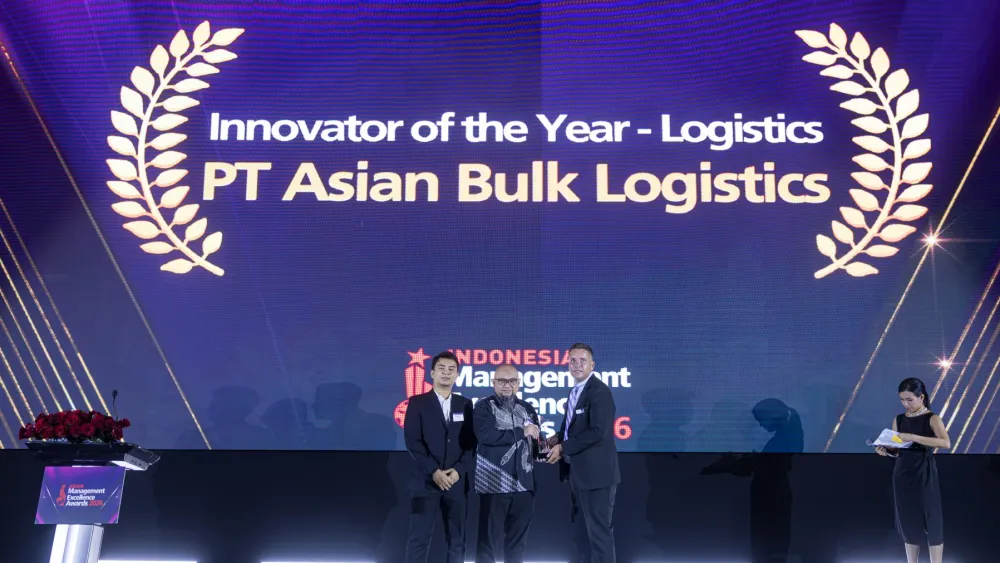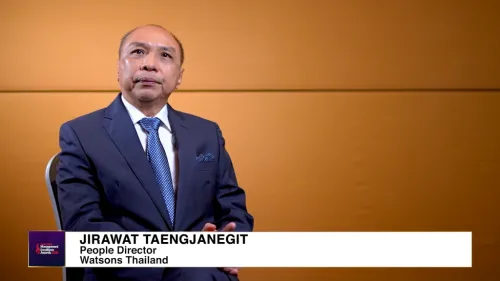
Established loyal customer base a formula for long-term success, says BDO Singapore director
Roger Loo noted that it is crucial for businesses to adapt to create a strategic customer experience.
Roger Loo is currently the Executive Director of the Management Consultancy Division of BDO Consultants. Since joining the company in 2008, he has led the growth of its management consultancy arm for the past decade.
Having a clear understanding of cultural diversity and market conditions, Loo has been greatly valued by clients and companies alike in their quests for internationalisation and future growth.
He has more than 20 years of experience in business intelligence and management consulting and a proven track record in areas including market intelligence and brand research, feasibility studies, strategy consulting, internationalisation, family businesses and performance management. His global expertise in management consulting includes countries such as China, Taiwan, Myanmar, India, Australia, USA, Indonesia, United Kingdom, and the Middle East and North Africa region.
Prior to joining BDO, Loo worked for another financial services company, specialising in banking and financial business intelligence, as well as research for banking communities in the Middle East, Asia and Oceania. He also worked as a senior consultant for a global military and security consulting arm, where he was involved in numerous strategic advisory and consultancy projects for military hardware vendors, government bodies and research institutes in the region.
Speaking about customer experiences with companies recovering from the impacts of the pandemic, Loo noted that customer experiences need to go beyond the traditional way of establishing a target demographic and developing promotional materials based on their perceived needs as information and observation will already exist from a number of sources.
“For the purposes of customer retention, companies should be seeking evidence of how the existing clients view your organisation, and their customer journey especially in the digital space,” he said.
As one of the esteemed judges for this year’s Asian Experience Awards, Loo has discussed the trends in how businesses connect with their customers, as well as the involvement of every person in the organisation in the delivery of an outstanding customer experience for clients. He has also provided insights on the strategies they can employ to ensure growth and success.
Digital transformation initiatives have been an integral part of companies’ recovery from the effects of the pandemic. Do you think this goes for customer experience as well? Why or why not?
Whilst many organisations spent a great effort in attracting new customers and opening up new markets in the post-pandemic era , it is especially important to hold onto the clients that you already have. It is estimated that a loyal customer will spend ten or more times the value of their initial expenditure, over the life of their relationship with a single company. Thus, having an established base of loyal customers is a formula for stability and long-term success. Therefore, creating a strategic customer experience in a digital marketplace where the brand touchpoints made possible through technology can sway buyers’ opinion, it is crucial to adapt – and to develop strategies for using online marketing and digital technology to encourage customers to stay, and for adding to your existing client base.
Customer experiences need to go beyond the traditional way of establishing a target demographic and developing promotional materials based on their perceived needs. Information and observations from a number of sources will already exist: purchasing histories, profile information from account registration or more public forums like social media, as well as monitoring and analysis of browsing and online activities. For the purposes of customer retention, companies should be seeking evidence of how the existing clients view your organisation, and their customer journey especially in the digital space.
What other trends are you currently seeing amongst businesses in terms of how they connect with customers?
Two key trends in the customer journey experiences where many organisations are cracking their brains to ensure that they are creating conversations as well as keeping the dialogue going in the customer experience framework.
Getting payment and ensuring timely distribution of your goods and services need not be the end of your dealings with the customer – as it can be perceived as an impersonal or passive process. Constantly finding ways to add personal touch to each transaction can go a long way toward reinforcing and maintaining a positive impression in the mind of a buyer. To attract and retain customers, it’s necessary to engage them in some way – and to provide reasons for them to continue interacting with your organisation. Your aim should be to open up a line of communication with your customers that simultaneously responds to their needs whilst reinforcing the fact that your organisation has something worthwhile to offer them. Your pool of market research, transaction analysis and consumer profiling data may be used as a source of ideas for online content that you can make available to enhance the customer experience, and to extend the reach of your brand. “Q & A”-style decision making tools, online estimators and calculators, recommendation tools: these are the kinds of features that can add value to a website or portal visit. And they add a level of interaction and dialogue to your dealings with a client.
Follow-up emails are a useful way of engaging customers, after a purchase or site visit. Phasing the communication over several days, messages may be tailored to provide information on products or services just acquired, as an avenue for technical support and assistance, or as a promotional tool for related goods and updates. Social media channels may be used as a platform for keeping your customers informed about developments in your industry, new product releases, “How To” guides, and specialist advice or resources. It’s also possible to exploit the social channel to create communities and forums, where customers can meet and share ideas with like-minded others. Creating a solid link with your organisation (perhaps by having a staff member as group moderator) is another way of extending your reach.
How can businesses ensure that everyone is involved in delivering a satisfactory customer experience?
Any brand with a sophisticated digital presence will agree that customer experience is critical. But in practice, customer experience is difficult to master and even harder to implement successfully. Beside the ability to maintain consistency across channels, ensuring quality support services, and incorporating new technologies to stay on trend with consumer habits is a monumental task, the key question always remains who owns customer experience? Customer experience can’t be owned by any one person. In the same way that marketing and sales are most effective when they join forces, customer experience should be a collective effort. After all, the most effective marketing in the world won’t matter if customers can’t complete their purchase because payment processing systems aren’t functioning correctly. And salespeople can’t expect to be successful if designers create an unintuitive product. Therefore, customer experience is a sales issue, an IT issue, a marketing issue, and so on. Every business division needs to understand the customer experience strategy and view their own division’s operations as part of the bigger picture. All consumer touch points should enhance customer experience in some form. This is why customer experience doesn’t end with just sales and marketing.
What do you think are the challenges that companies are currently facing in terms of customer experiences? How can they address these?
Many researches have revealed the most prevalent challenges: customers experiencing the need to repeatedly relay same information during the customer journey; lack of personalisation in customer interactions with marketing touchpoints; customers’ growing perception during their engagement with marketing touchpoints that their time is not valued; outsourced marketing agents seems to lack context about customers, and; customer service being transferred from one department to another departments without any accountability taken.
Fortunately, as the saying goes, “Our biggest challenges are also our biggest opportunities.” Indeed, getting to grips with where they are falling behind often opens up the most fruitful investment opportunities for customer experiences.
With many organisations still recovering from the impacts of the pandemic, what do you think are the steps they can take to ensure growth and success in terms of customer experience?
The factors that can impact the success of customer experience initiative typically centred around cooperation, integration and overall cross-functional enterprise planning and support. Customer experience is definitely a true team sport that sometimes looks more like a company philosophy than a project or an initiative. Achieving success in customer experience requires both an understanding of the critical success factors and enough innovation to facilitate the significant changes that these success factors are sure to necessitate.



















 Advertise
Advertise








